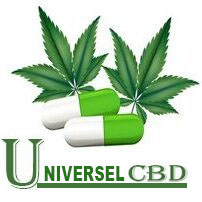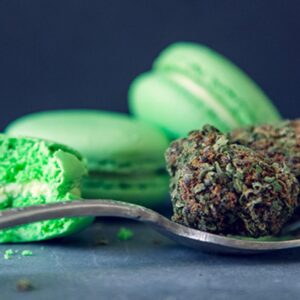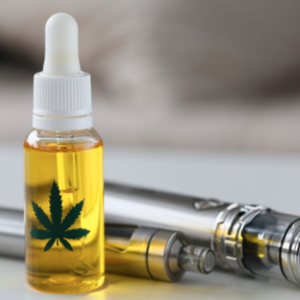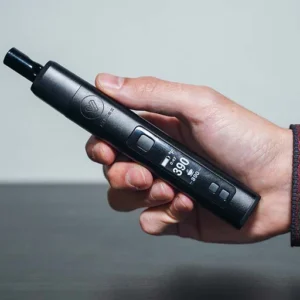As the legal use of hemp and other cannabis products grows, consumers are becoming more and more interested in their options. This includes cannabidiol (CBD) and tetrahydrocannabinol (THC), two naturally occurring compounds found in plants of the Cannabis genus.
CBD can be extracted from hemp or cannabis.
Both hemp and cannabis come from the Cannabis sativa plant. Legal hemp must contain no more than 0.3% THC. CBD is sold in the form of gels, gummies, oils, supplements, extracts, and more.
THC is the main psychoactive compound in cannabis that produces intense sensations. It can be consumed while smoking cannabis. It is also available as oils, foods, tinctures, capsules, and more.
These two compounds interact with your body’s endocannabinoid system, but have very different effects.
Read on to find out more about these connections. While they may have a lot in common, they do have some key differences that determine how they are used.
CBD vs. THC: Chemical structure
CBD and THC have the same molecular structure: 21 carbon atoms, 30 hydrogen atoms, and 2 oxygen atoms. The small difference in the arrangement of the atoms explains the different effects on your body.
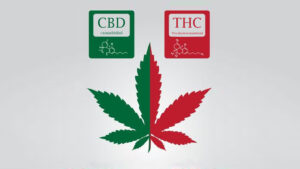
CBD and THC are chemically similar to the endocannabinoids in your body. This allows them to interact with their cannabinoid receptors.
The interactions affect the release of neurotransmitters in your brain. Neurotransmitters are chemicals that transfer messages between cells and play a role in pain, immune function, stress, and sleep.
CBD vs. THC: Psychoactive components
Despite their similar chemical structures, CBD and THC do not have the same psychoactive effects. CBD is psychoactive, but not in the same way as THC. Does not produce the high effect associated with THC. CBD has been shown to help with anxiety, depression, and seizures.THC binds to cannabinoid 1 (CB1) receptors in the brain. Produces an effect or a feeling of euphoria.
CBD binds very weakly, if at all, to CB1 receptors. CBD needs THC to bind to the CB1 receptor, and in turn, it can help reduce some of the unwanted psychoactive effects of THC, such as euphoria or sedation.
CBD vs. THC: Legality
In the United States, cannabis laws change regularly. Technically, CBD is still considered a Schedule I drug under federal law.
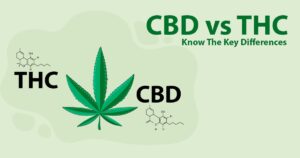
Hemp has been removed from the Controlled Substances Act, but the Drug Enforcement Administration (DEA) and Food and Drug Administration (FDA) still classify CBD as a Schedule I drug.
However, 33 states and Washington, D.C., have passed cannabis laws, making medical cannabis containing high levels of THC legal. Cannabis may need to be prescribed by a licensed physician.
In addition, several states have legalized the recreational use of cannabis and THC.
In states where cannabis is legal for recreational or medical purposes, you should be able to purchase CBD.
Before trying to buy any products that contain CBD or THC, it is important to research the laws in your state.
If you own cannabis-related products in a state where they are illegal, or if you do not have a prescription in states where the products are legal for medical treatment, you could face legal penalties.
CBD vs. THC: Medical benefits
CBD and THC have many of the same medical benefits. They can provide relief from several of the same conditions. However, CBD doesn’t cause the euphoric effects that occur with THC. Some people may prefer to use CBD because of the lack of this side effect.
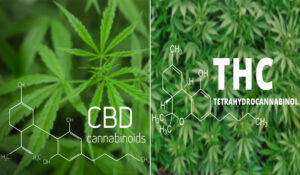
In June 2018, the FDA approvedTrusted Source Epidiolex, the first prescription medication to contain CBD. It’s used to treat rare, difficult-to-control forms of epilepsy. (Epidiolex is not currently approved for any of the other conditions listed below.)
CBD is used to help with other various conditions, such as:
- seizures
- inflammation
- pain
- psychosis or mental disorders
- inflammatory bowel disease
- nausea
- migraine
- depression
- anxiety
THC is used to help with the following:
- pain
- muscle spasticity
- glaucoma
- insomnia
- low appetite
- nausea
- anxiety
CBD vs. THC: Side effects
CBD is well tolerated, even in large doses. ResearchTrusted Source suggests any side effects that occur with CBD use are likely the result of drug-to-drug interactions between CBD and other medications you may be taking.
THC causes temporary side effects, such as:
- increased heart rate
- coordination problems
- dry mouth
- red eyes
- slower reaction times
- memory loss
- anxiety
CBD’s side effects may include:
- appetite changes
- fatigue
- weight loss
- dizziness
- diarrhea
These side effects are part of the compound’s psychoactive properties.
Neither compound is fatal.
However, high THC use may be connected to long-term negative psychiatric effects. This is especially true for adolescents who consume large amounts of THC, though there’s no conclusive evidence that using cannabis causes psychiatric disorders like schizophrenia.
CBD vs. THC: Drug testing
Cannabinoids like THC and CBD are stored in the body’s fat. They can show up on drug tests for several days or weeks after you use them.
Not every drug test will be able to detect CBD, but CBD-sensitive tests are available. Most standard drug tests will look for chemicals related to THC, so THC or marijuana use might show up on a screening.
Likewise, hemp can produce some THC in addition to CBD, so a test could be positive for THC even if you haven’t used it.
It’s important to note that products that claim to be THC-free may not be free of THC, so if you’re drug tested, you shouldn’t use any CBD or THC products.
Why do people talk about THC content in CBD oil if THC and CBD are two different compounds?
CBD and THC are two of the most prominent cannabinoids found in the cannabis plant. Both cannabis and hemp produce CBD and THC.
However, cannabis has a higher concentration of THC. Hemp has a higher concentration of CBD.
The average cannabis strain today contains about 12 percentTrusted Source THC. CBD oil may contain small amounts of THC because it’s present at low levels in the hemp plant. CBD can have no more than 0.3 percent THC to be legal at the federal level.
Takeaway
CBD and THC both have medical benefits. They’re also both considered safe, but consider the possibility of side effects and interactions with other drugs you’re taking.
